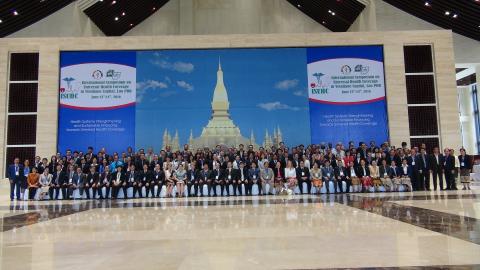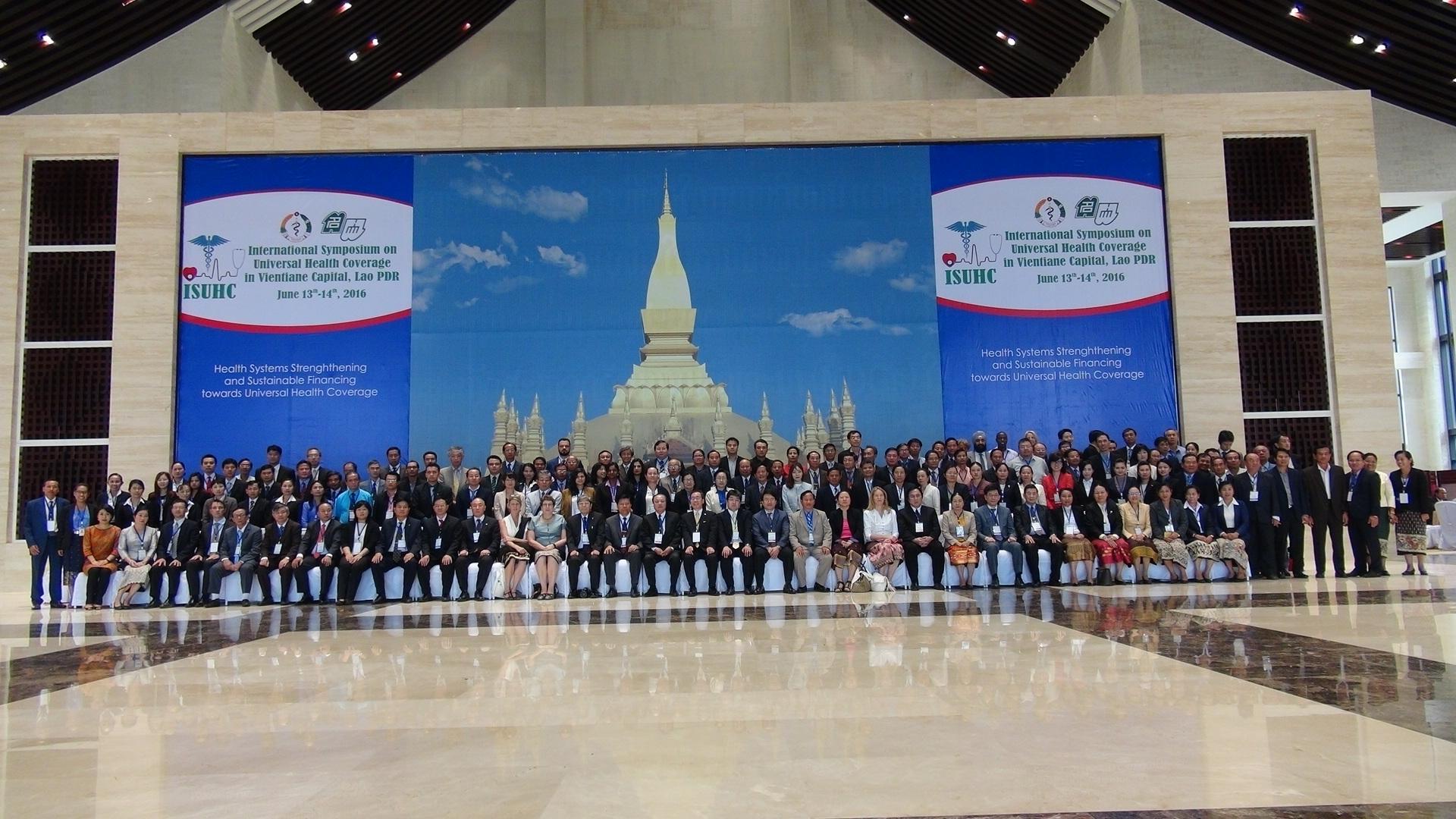
One year on from the adoption of the new United Nation Post-2015 Agenda, the SDG dialogue keeps the light on Universal Health Coverage (UHC). Target 3.8 relates specifically to UHC mobilizing the Global Health community to its achievement. A topic that the WHO’s Director General, Margaret Chan, defined as “the most important concept that public health has to offer”.
To spread awareness and push forward the debate on UHC, the Lao People’s Democratic Republic (PDR) Ministry of Health, in collaboration with the Nagoya University in Japan, organized the International Symposium on UHC, held on the 13th and 14th of June 2016 at the National Convention Centre in Vientiane Capital. The Symposium placed Health Systems Strengthening and Sustainable Financing towards UHC at the core of its program.
Lao PDR is committed to UHC implementation and in November of 2015, it was the 20th country to join the EU-Luxembourg-WHO Partnership on Universal Health Coverage (UHC-Partnership). Through this partnership, the WHO Country Office for Lao PDR supported the Symposium by offering technical staff participation as moderators and panellists during various sessions. In order to improve visibility and international participation to the Symposium, the UHC-Partnership also funded the translation service, which allowed for the active participation and involvement of the Ministries of Health from Thailand, Cambodia, Malaysia, Myanmar, Philippines and Indonesia in the debate.
The two-day Symposium focused on three fundamental aspects of UHC: 1. Population coverage, 2. Quality service delivery including skilled human resources, and finally 3. Financial Protection. These topics are closely interlinked and ensuring an equilibrium among them is key. Specifically, the need to balance depth of coverage with financial protection and improved service delivery was recognised. If services are not available, accessible or appropriate, then people are not able to benefit from them even if entitled.
The quality of health services is a crucial driving factor for their utilization. In consideration of that, Lao PDR continues to address this core issue from four different and complementary angles: 1. Appropriate and responsive service delivery planning and provision, 2. Multi-disciplinary and interconnected human resources 3. Availability of equipment and medicines, and 4. Strong regulatory, monitoring and governance mechanisms. The improvement of these pillars is indeed connected to the mobilization of new resources and their allocation on an equity based process, guided by the awareness that each social group has distinct needs.
Health Financing and Human Resources for Health in the context of UHC promotion will continue to be the focus of the UHC-Partnership for Lao PDR during follow-up meetings and in the context of the future National UHC Workshop. This National Workshop will be convened by the Ministry of Health later this year and aims to be a continuation of the International Symposium aimed at building responsiveness and understanding on UHC in Lao PDR.
While acknowledging regional and country issues related to UHC, WHO´s closing remarks of the summit were directed towards the international community. During her final speech, the WHO representative Dr. Juliet Fleischl delivered a message on the overarching goals of UHC: equity and financial protection. According to Dr. Fleischl, “these two factors make UHC a truly powerful goal for the health sector. They move us beyond providing health services and towards ensuring social equity and justice. As such, UHC does not only mean financial protection but equitable access to comprehensive essential quality health services. The achievement and sustainability of UHC depends more on the committed spirit of the health workers, the ownership by the people, and good governance systems.”
